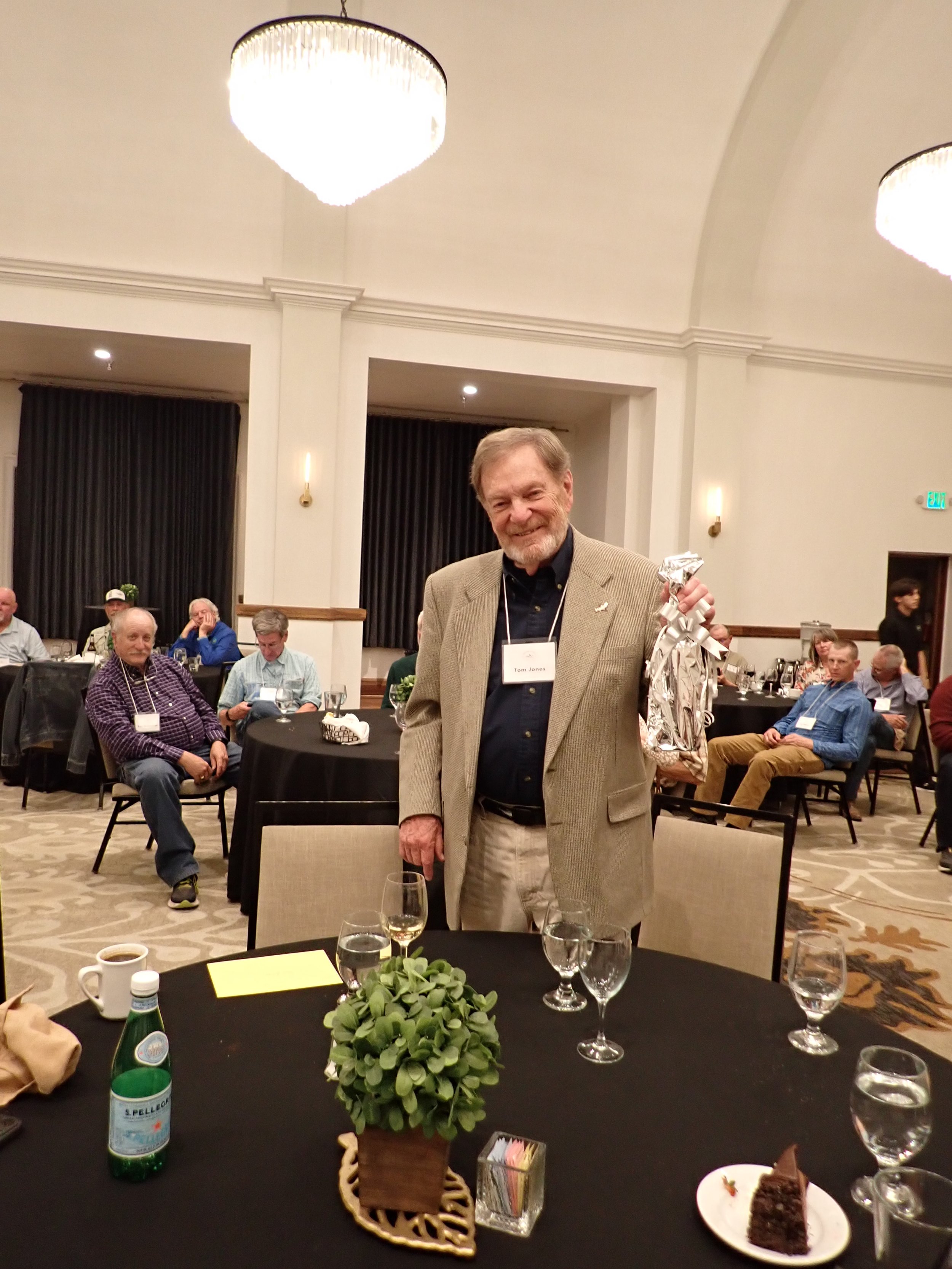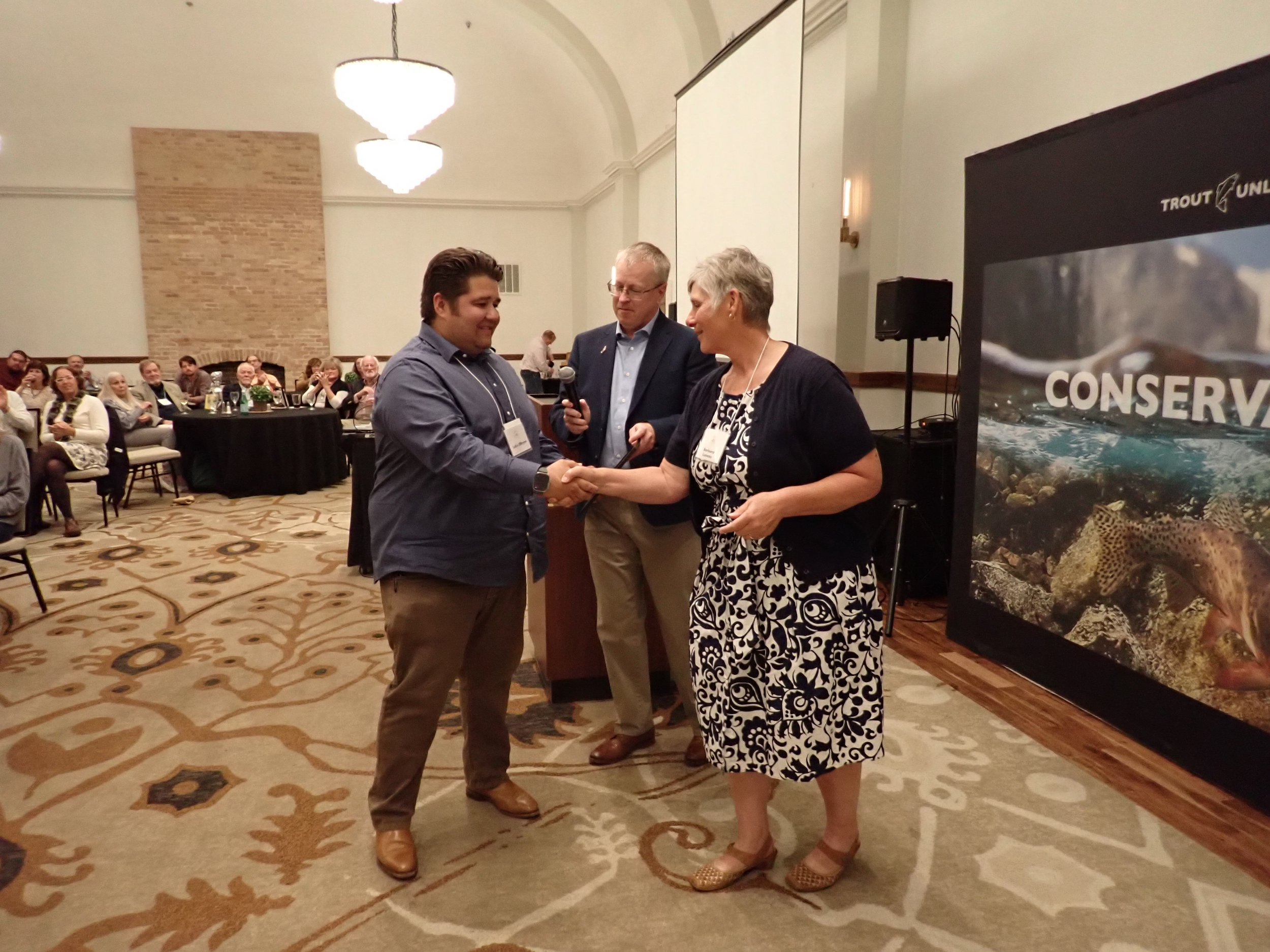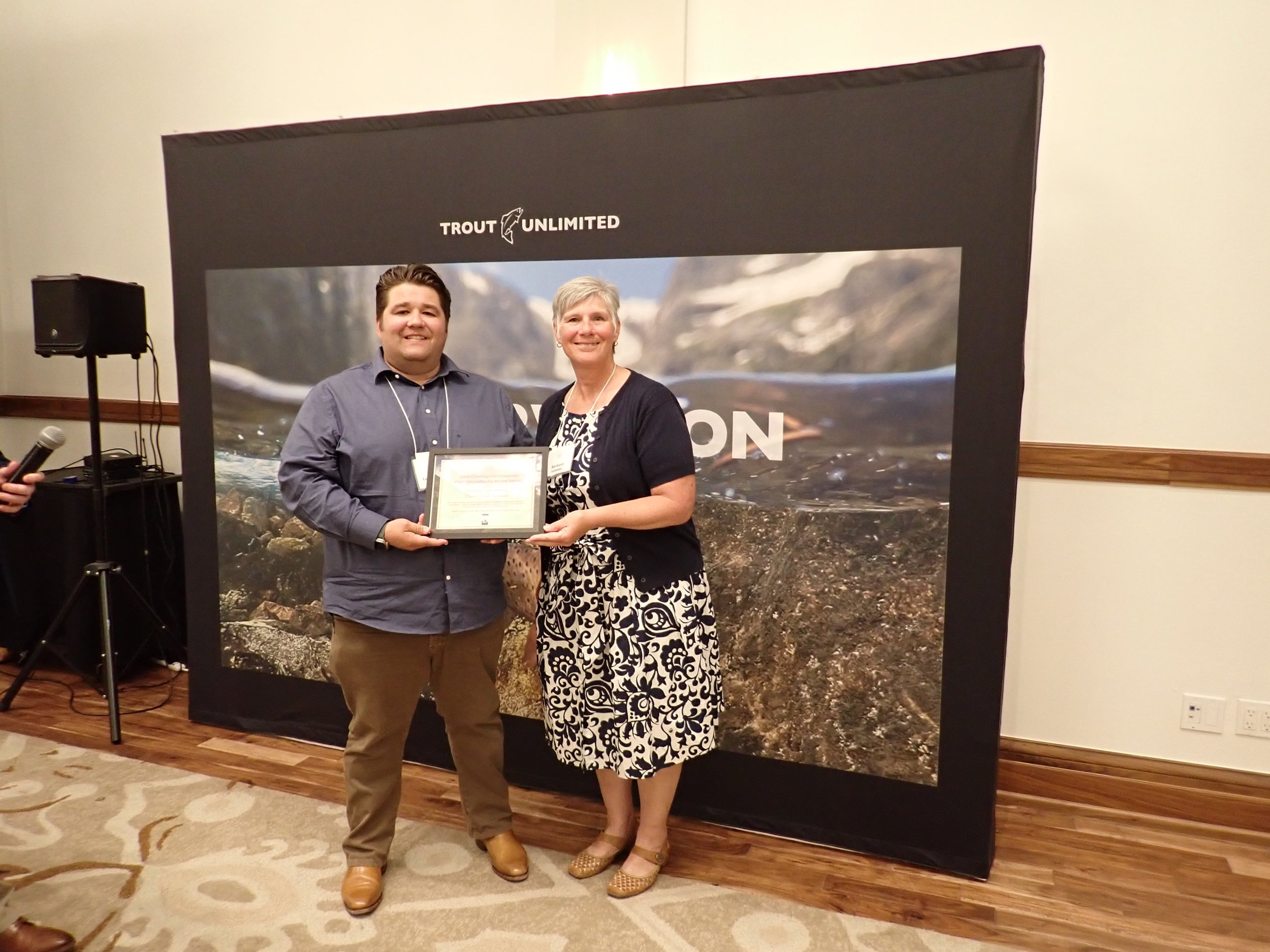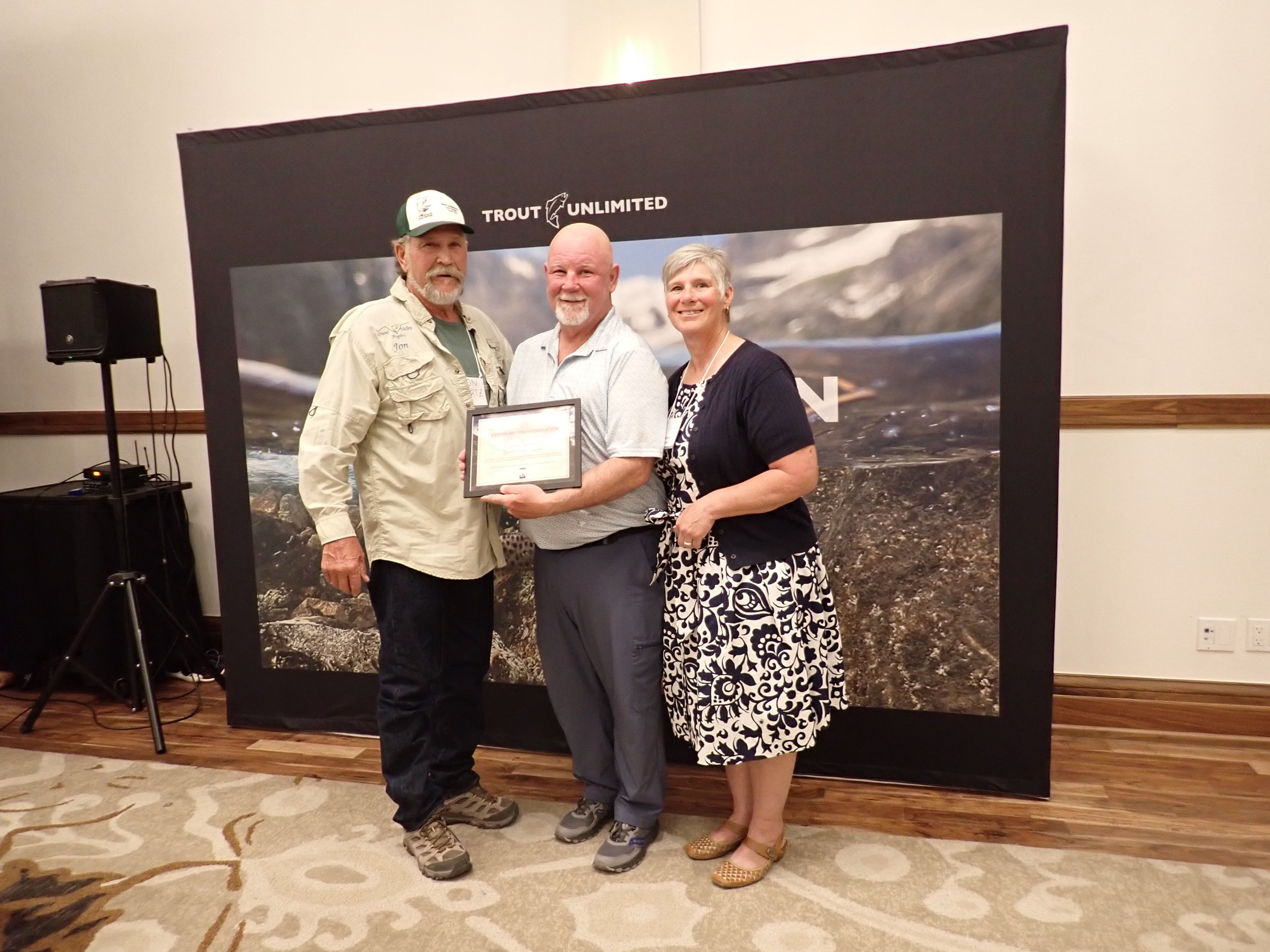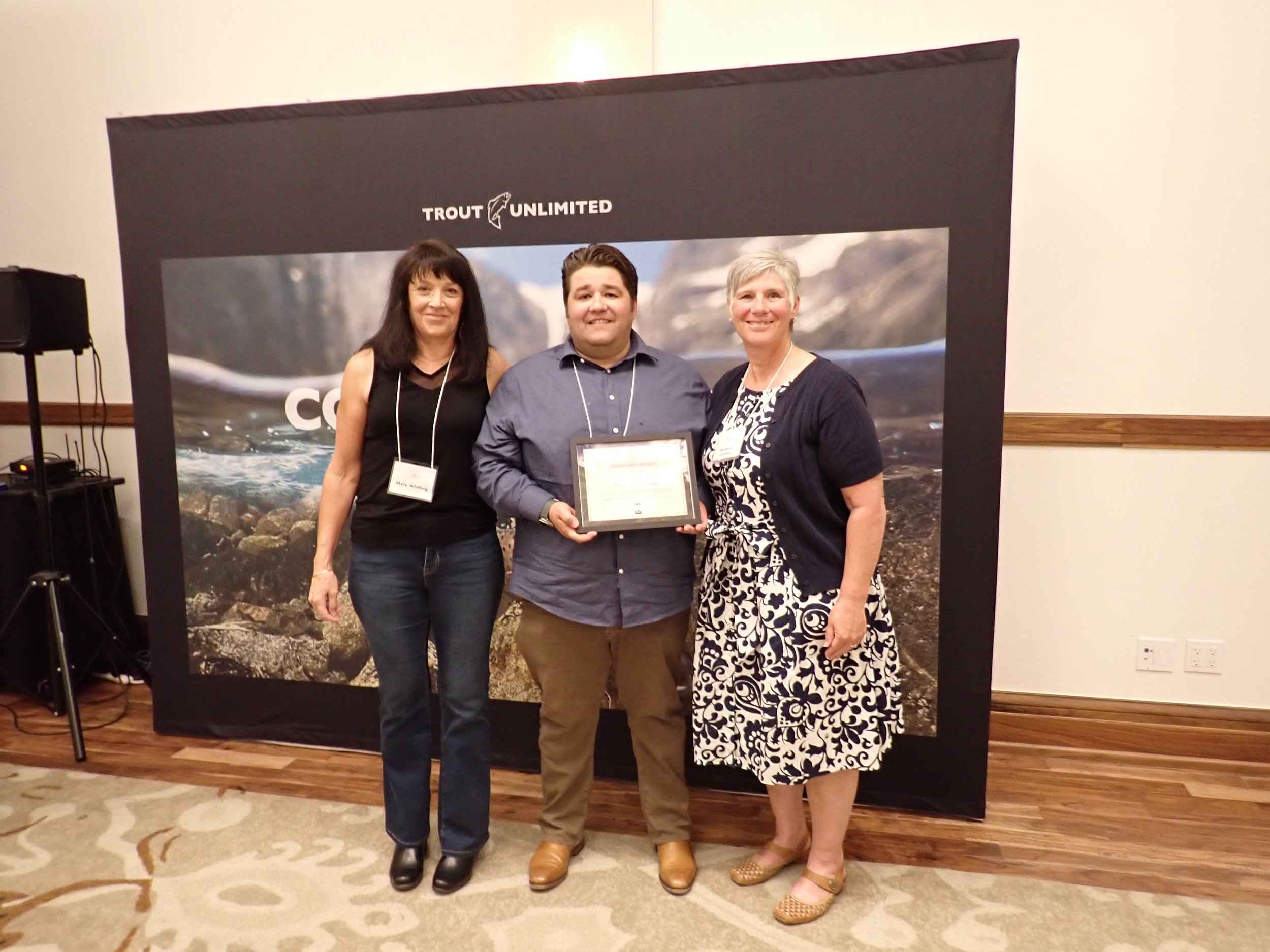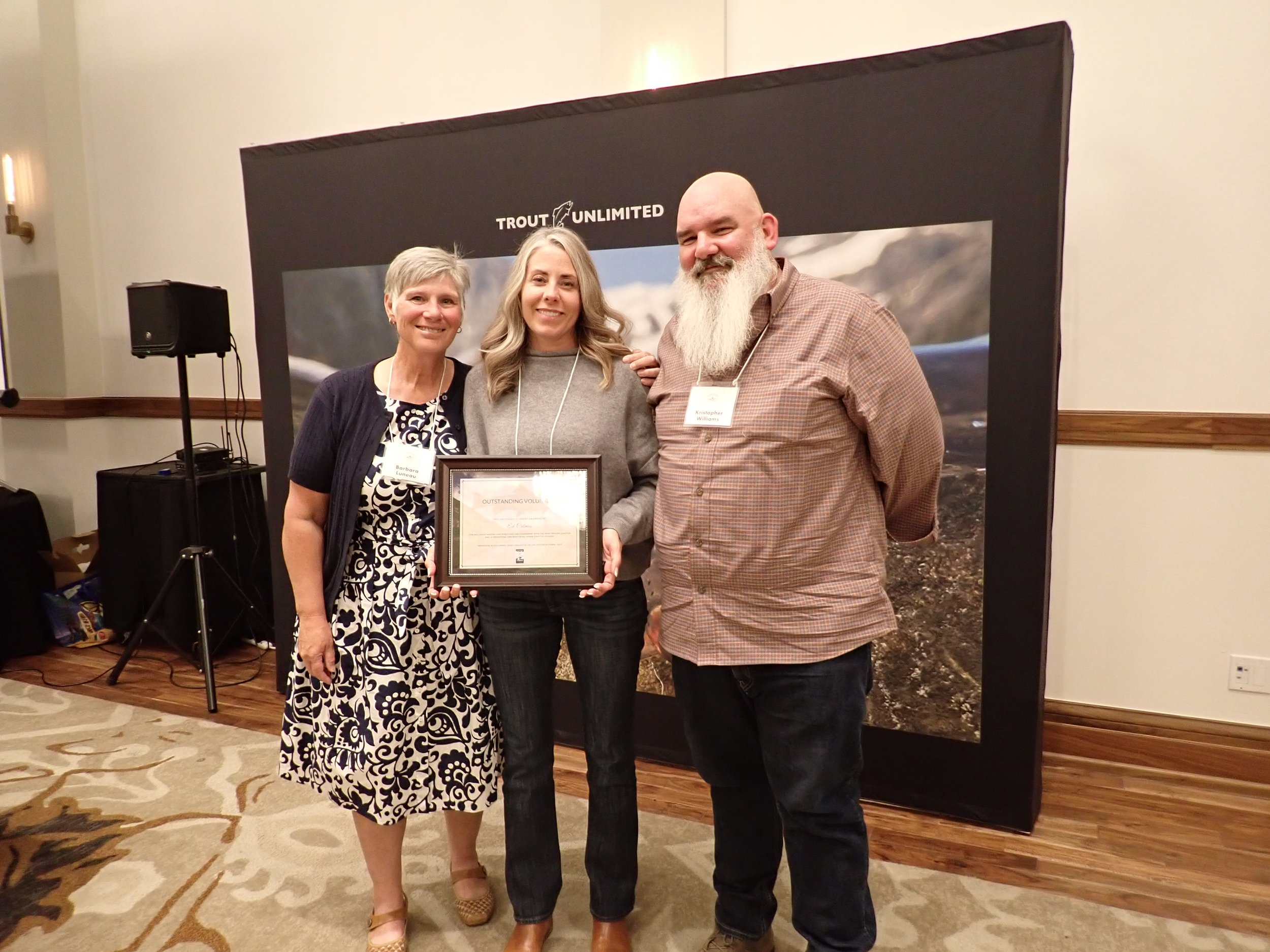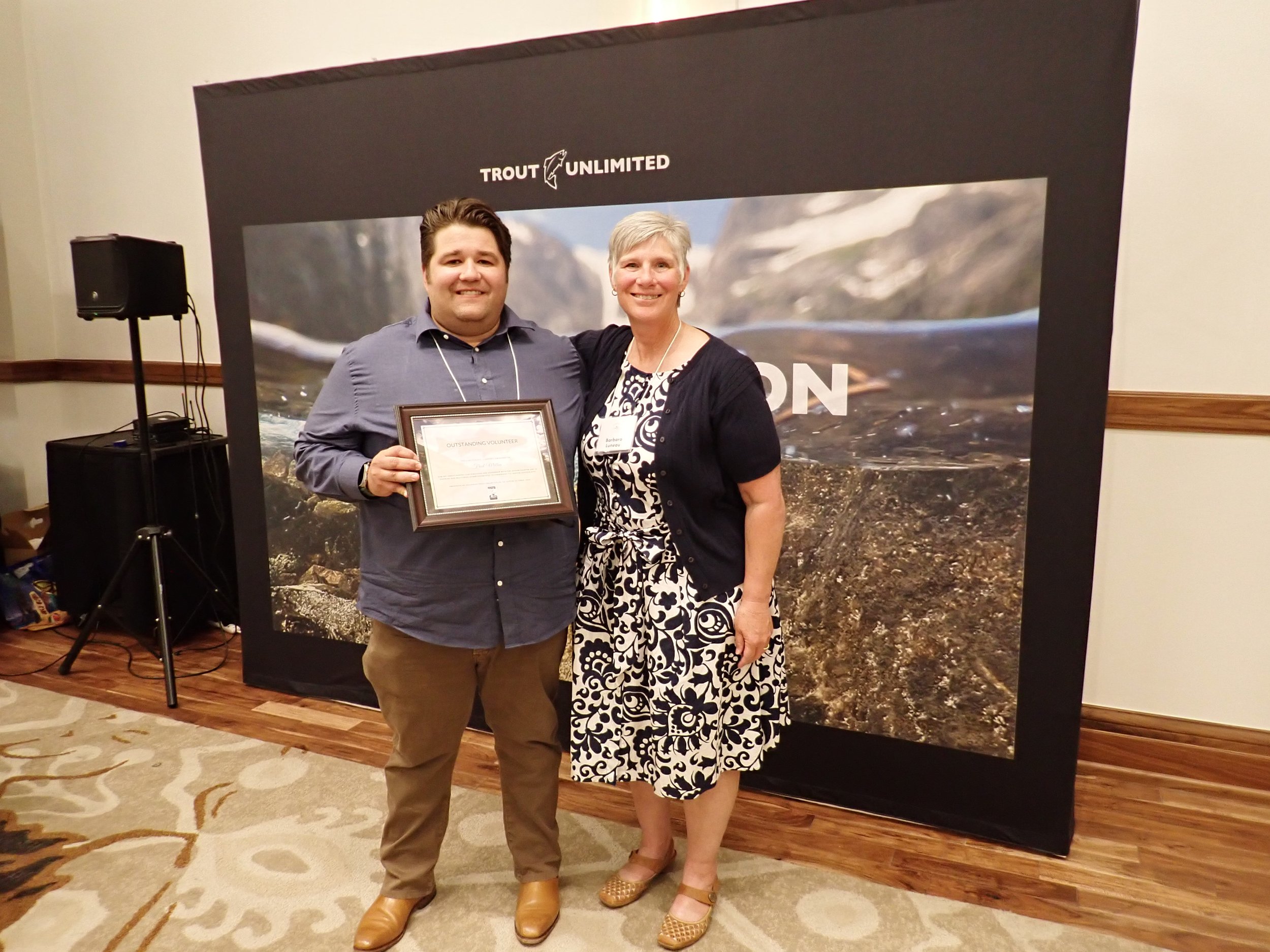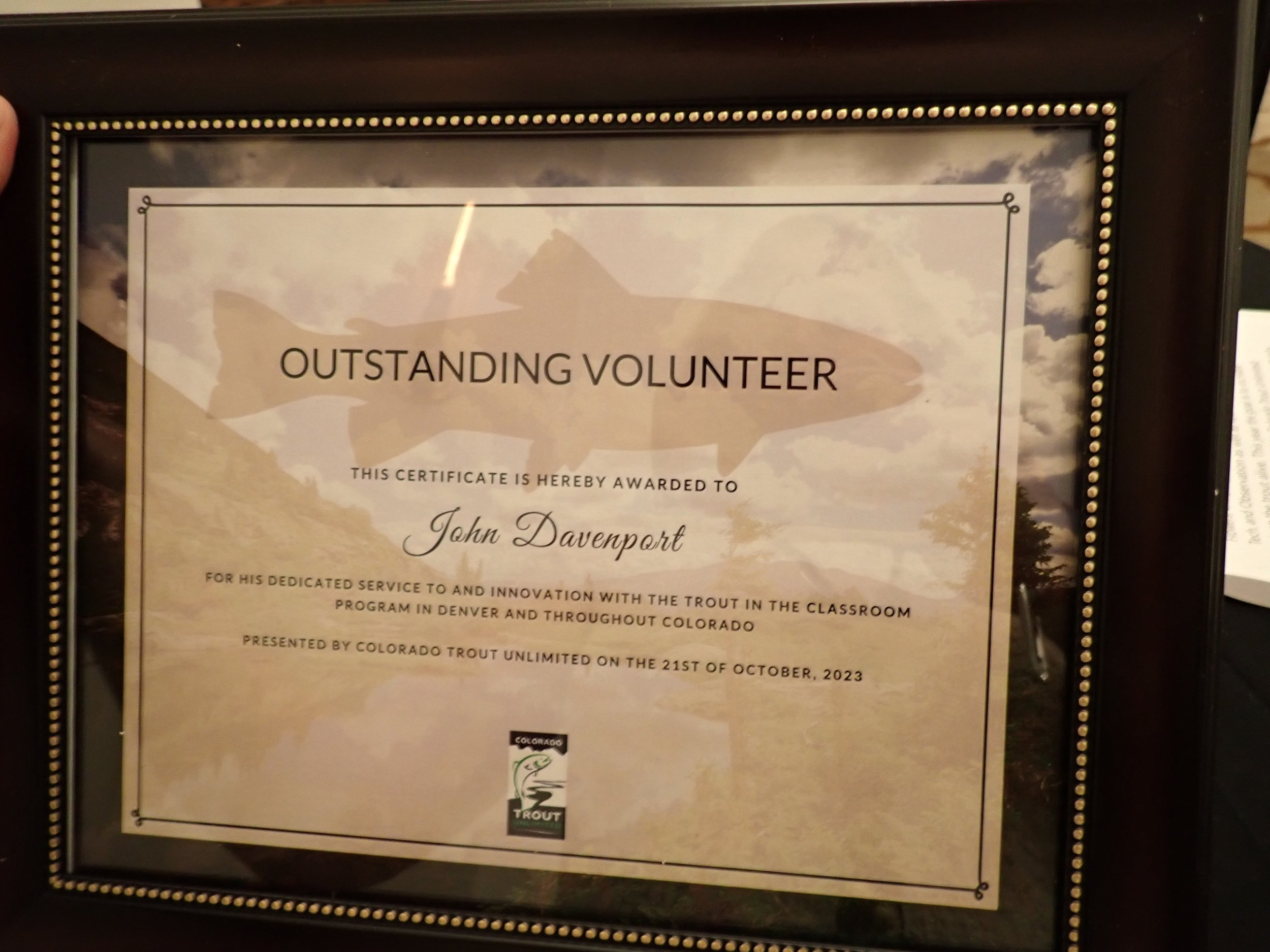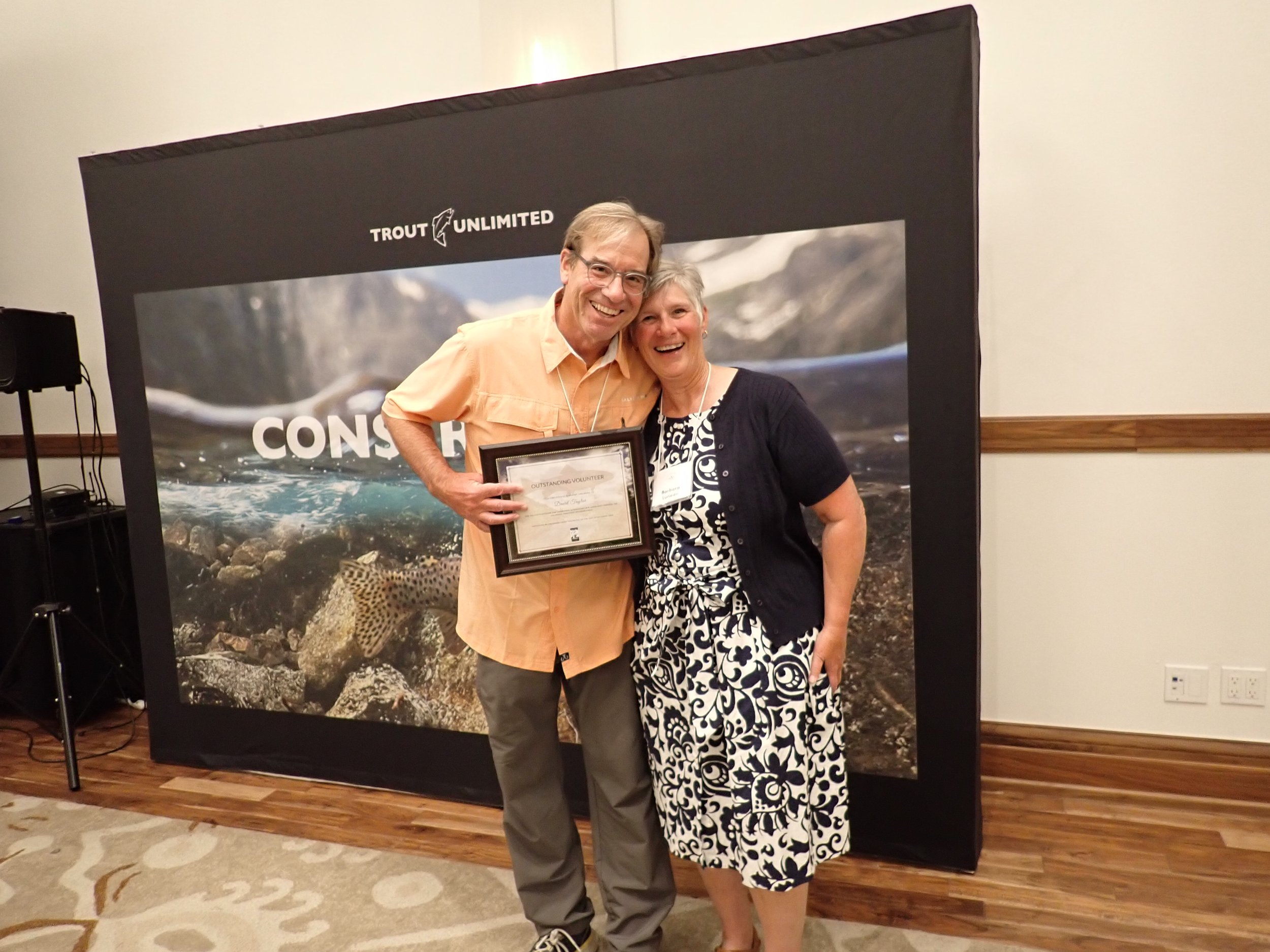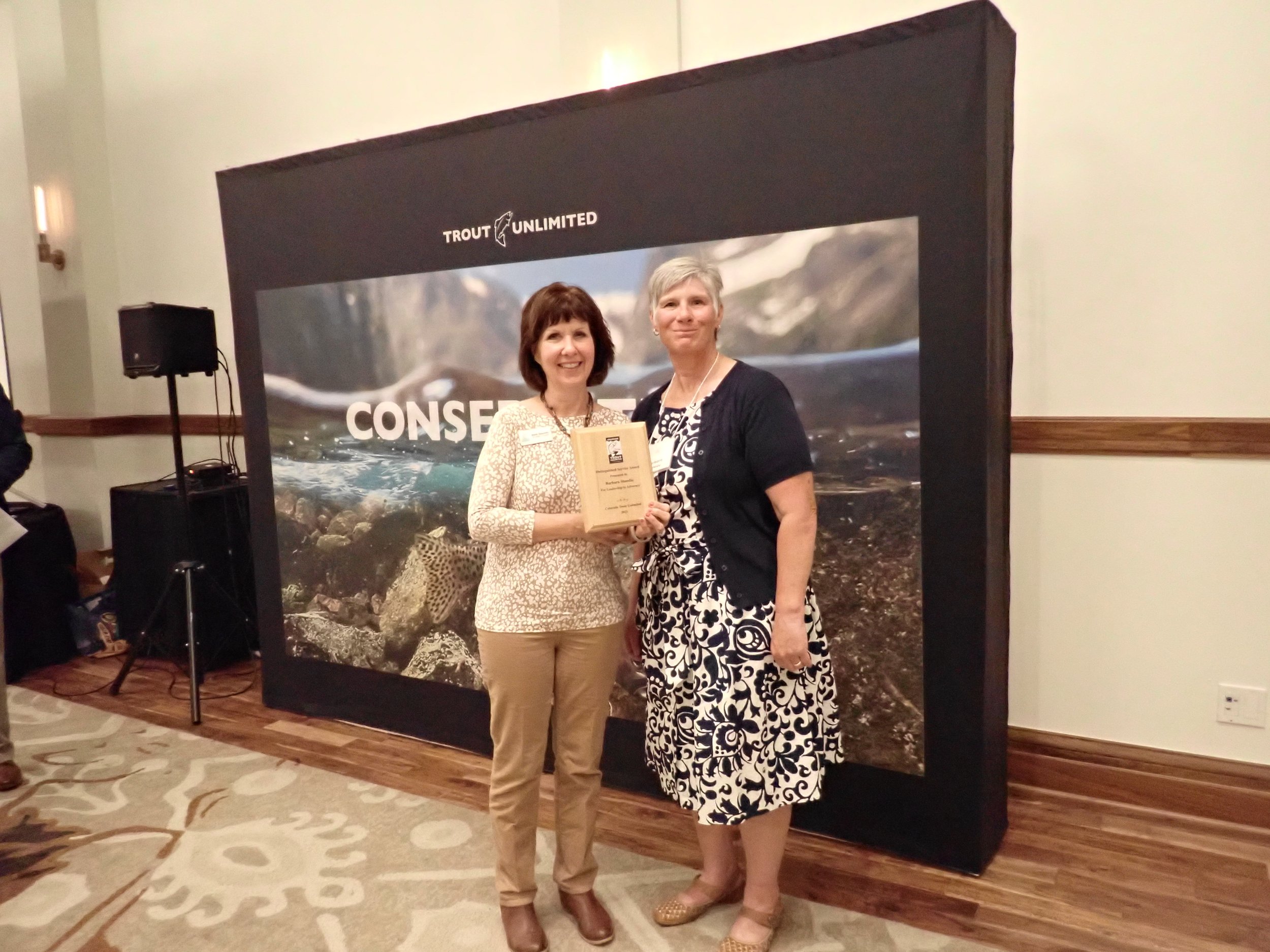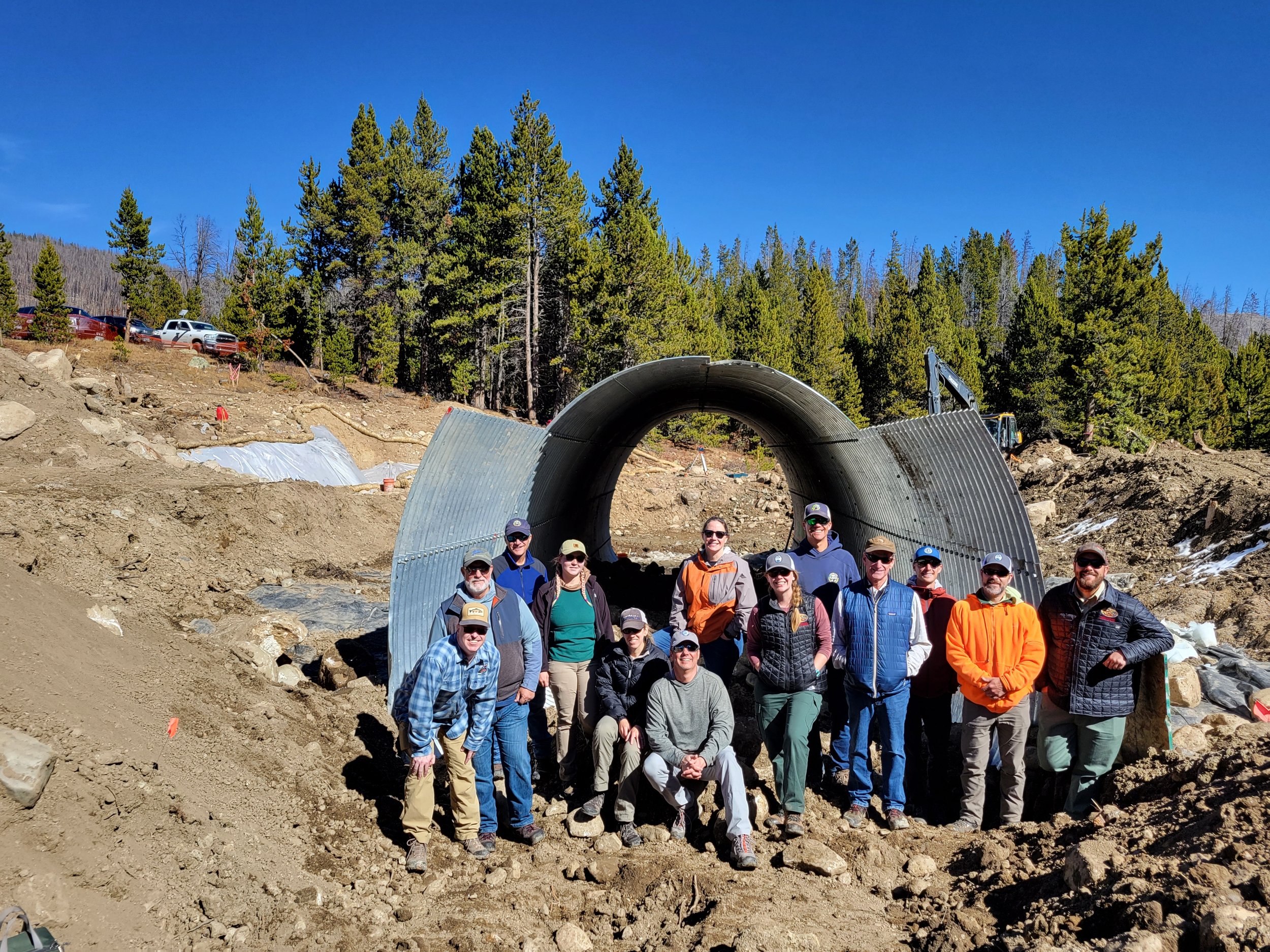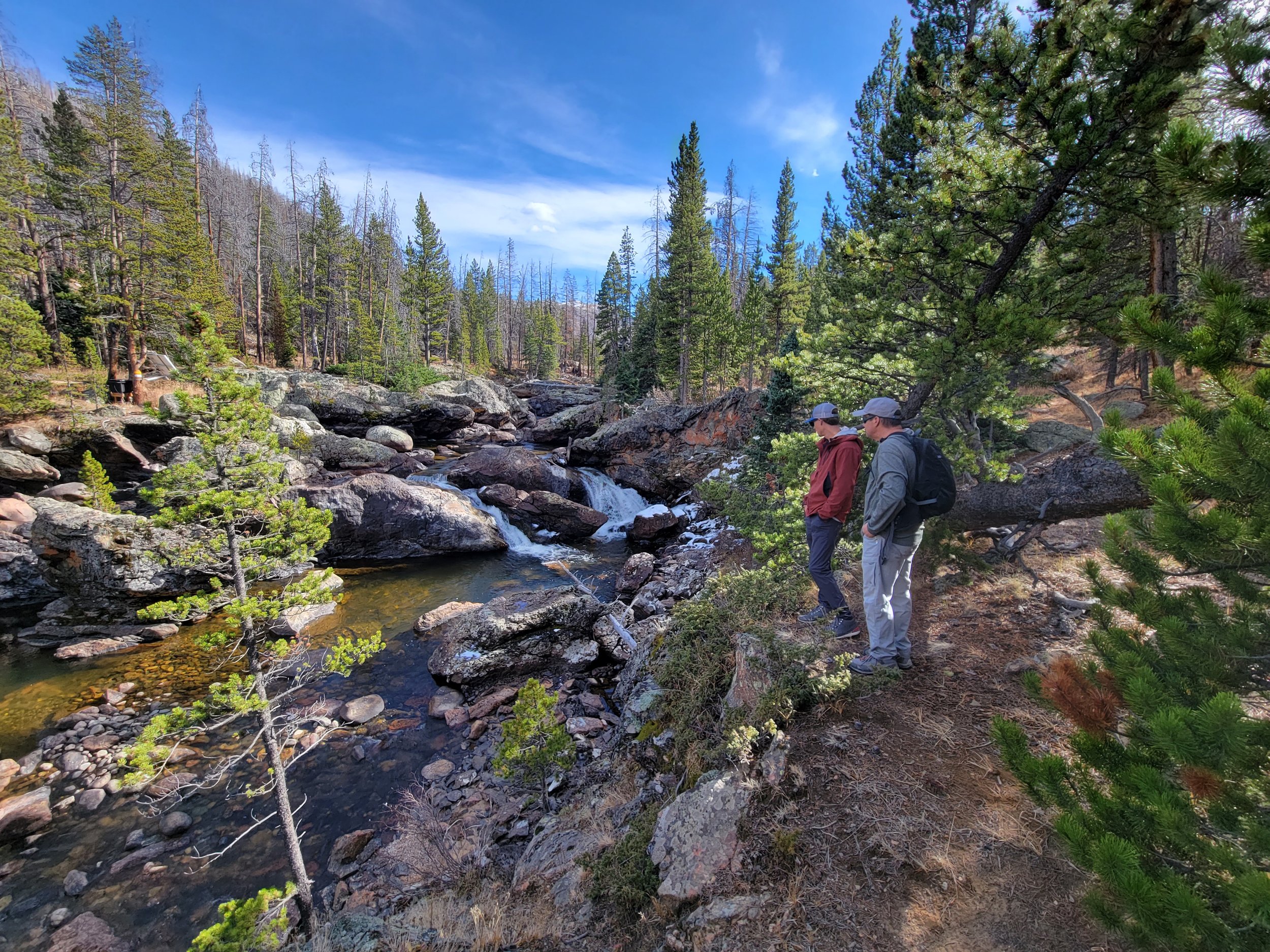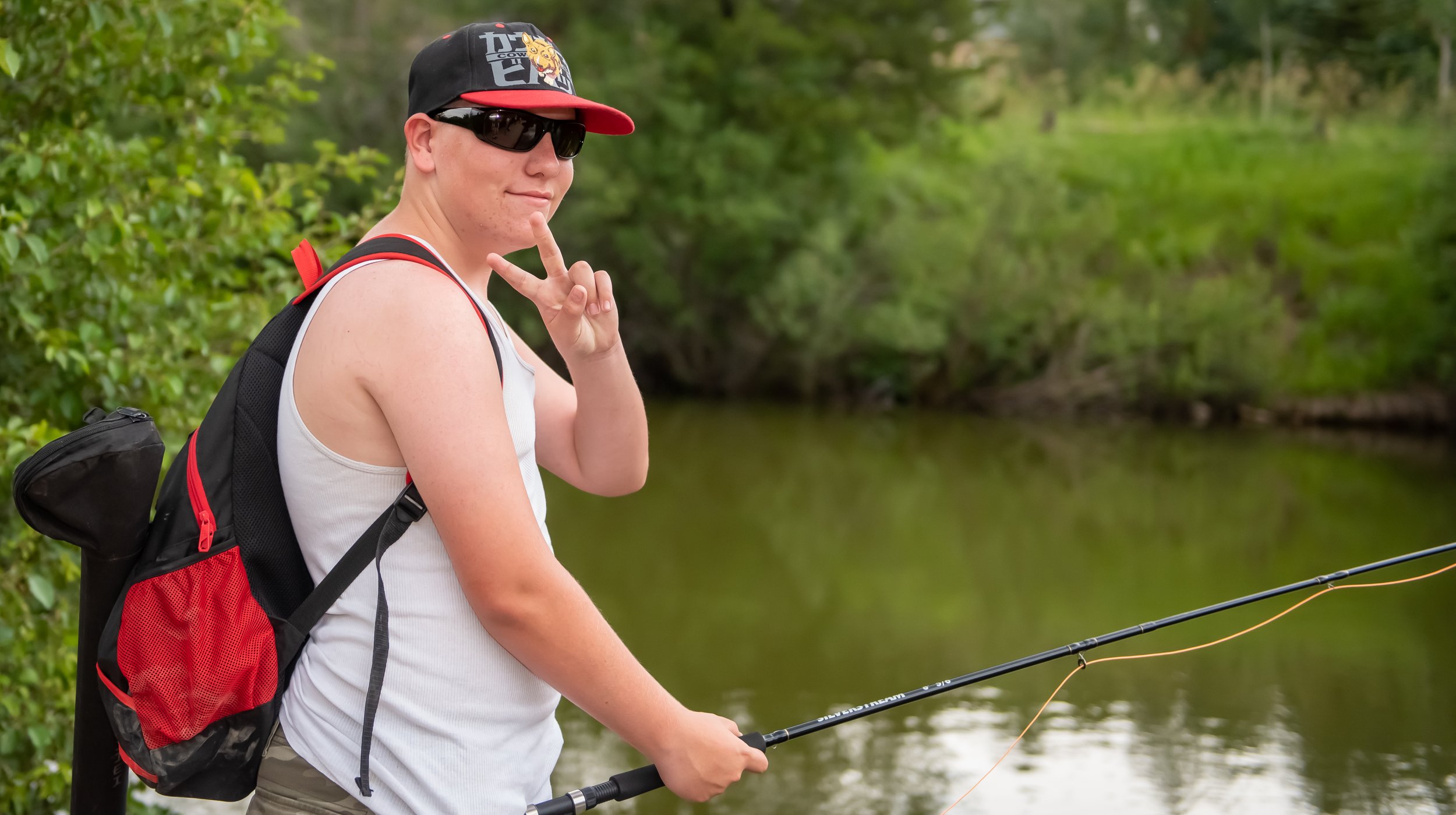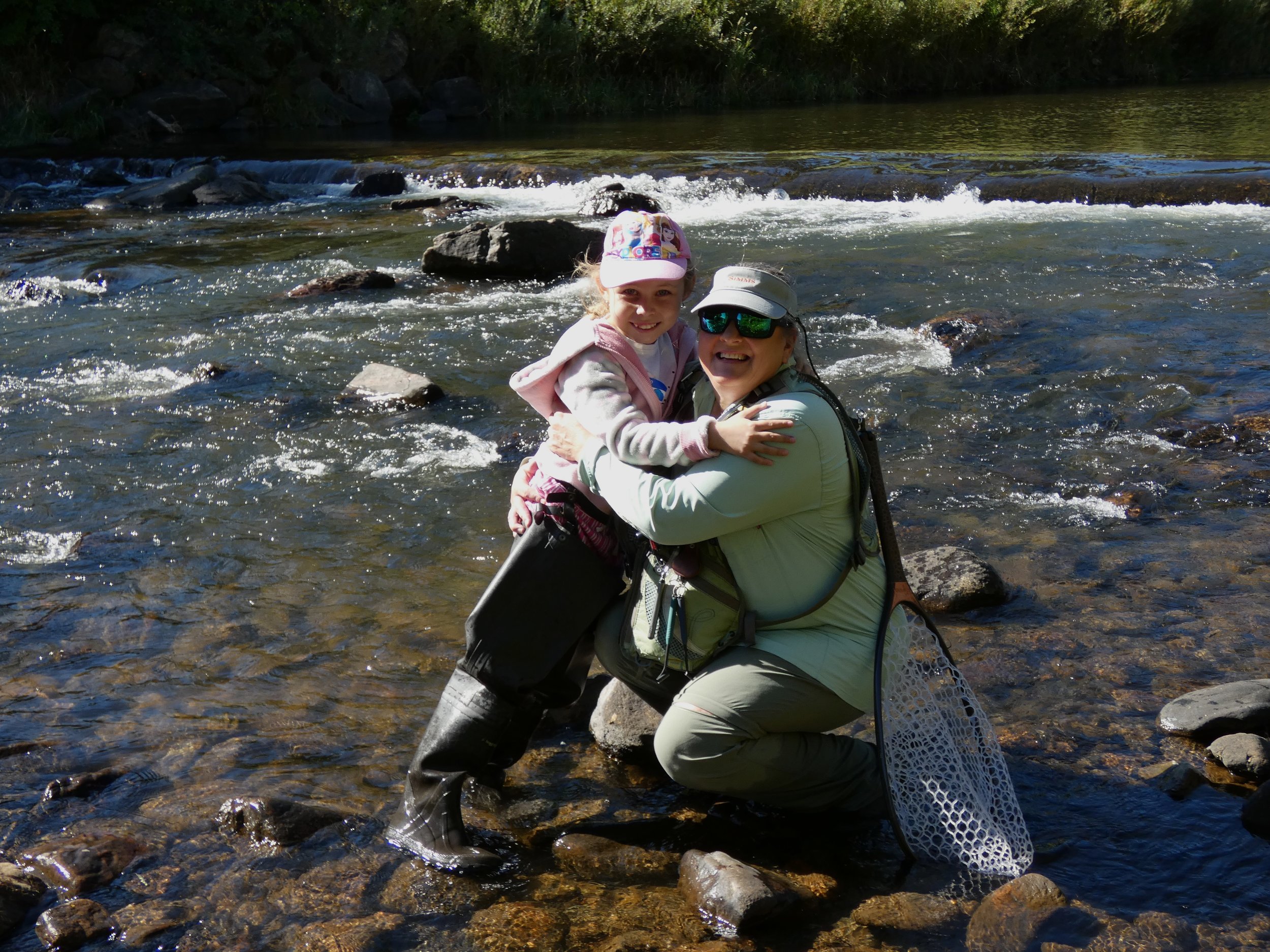At the Rendezvous in Glenwood Springs, winners were recognized for the annual Colorado TU Awards. Congratulations to the chapters and individuals who were recognized for their contributions to coldwater conservation and community!
John Connolly Chapter Communications Award
The Denver Chapter was recognized for its work in expanding its reach through engaging social media content, and its participation in numerous community events – including its own Carp Slam – to help build awareness and involvement with conservation of the Denver South Platte.
Exemplary Youth Education
The Grand Valley Anglers chapter was honored for its expanding programs for youth, including support for multiple Trout in the Classroom sites with local schools and volunteer support for STREAM Girls programming to connect Girl Scouts with fishing and watersheds through the science, recreation and art.
Exemplary Project
The Denver Chapter received this award for its work on water quality advocacy for the Denver South Platte. In collaboration with other community and environmental groups, the chapter successfully restored stronger anti-degradation protections for the river and continues to advocate for those protections to be reflected in polluters’ discharge permits.
Outstanding Volunteer
Four volunteers were recognized this year for their dedicated service. Ed Calmus was honored for his longtime leadership with West Denver Chapter and mentorship to other emerging leaders. John Davenport was recognized for his hard work and innovation in strengthening the Trout in the Classroom education program across the state. Fred Miller was honored for his vision and leadership with the Denver Chapter and building up its efforts to protect the Denver South Platte. Dave Taylor was recognized for his leadership in conceiving and organizing the Colorado TU Troutfest event to engage new audiences for conservation and angling.
Exemplary Chapter
The Yampa Valley Fly Fishers were honored as 2023’s Exemplary Chapter. The award recognized their longstanding partnership with the Yampa Valley Stream Improvement Charitable Trust in conducting habitat improvements along the Yampa River, their robust youth education programs, and their successful and unique “Golftrout” event.
Exemplary Landowner
Laine O’Neal received the inaugural Exemplary Landowner award, in recognition of her leadership in organizing with her neighbors to improve riparian habitat in the Elkhead Creek watershed and restore connectivity with the mainstem Yampa by eliminating fish passage barriers.
Exemplary Industry Partner
The North Fork Ranch Guide Service was recognized for its longstanding support of Trout Unlimited as well as its efforts to help promote the healing power of fly fishing and community through hosting events with partners including Casting For Recovery and Reel Recovery, as well as for veterans.
Distinguished Service Award
Barb Sheedlo was honored for her tireless efforts in fighting for protection of Colorado’s rivers from the threats posed by the Uinta Basin Railway, through well-researched and credibly delivered advocacy and collaboration with other conservation partners.
April Kraft, Josh Nehring, and Robert Streater of Colorado Parks and Wildlife were recognized for their partnership and support for the Trout in the Classroom program, helping to improve the program and allow it to more than double its reach to Colorado youth over the past year.
Trout Conservation Award
Matt Fairchild of the U.S. Forest Service was honored for his leadership in coordinating work on the Poudre Headwaters Project, which will ultimately restore native Greenback cutthroat trout to 38 miles of connected streams as well as Long Draw Reservoir.
Silver Trout Award
Selected by past recipients of the award, the Silver Trout recognizes lifetime contributions toward trout conservation in Colorado. For 2023, two recipients – Kirk Klancke and Mely Whiting – were recognized for their collective years of work in stewardship for the Colorado River headwaters through both advocacy and through partnership projects under the “Learning by Doing” collaborative and with the soon-to-be in place Colorado River Connectivity Channel to restore fish passage and river function at Windy Gap Reservoir.
